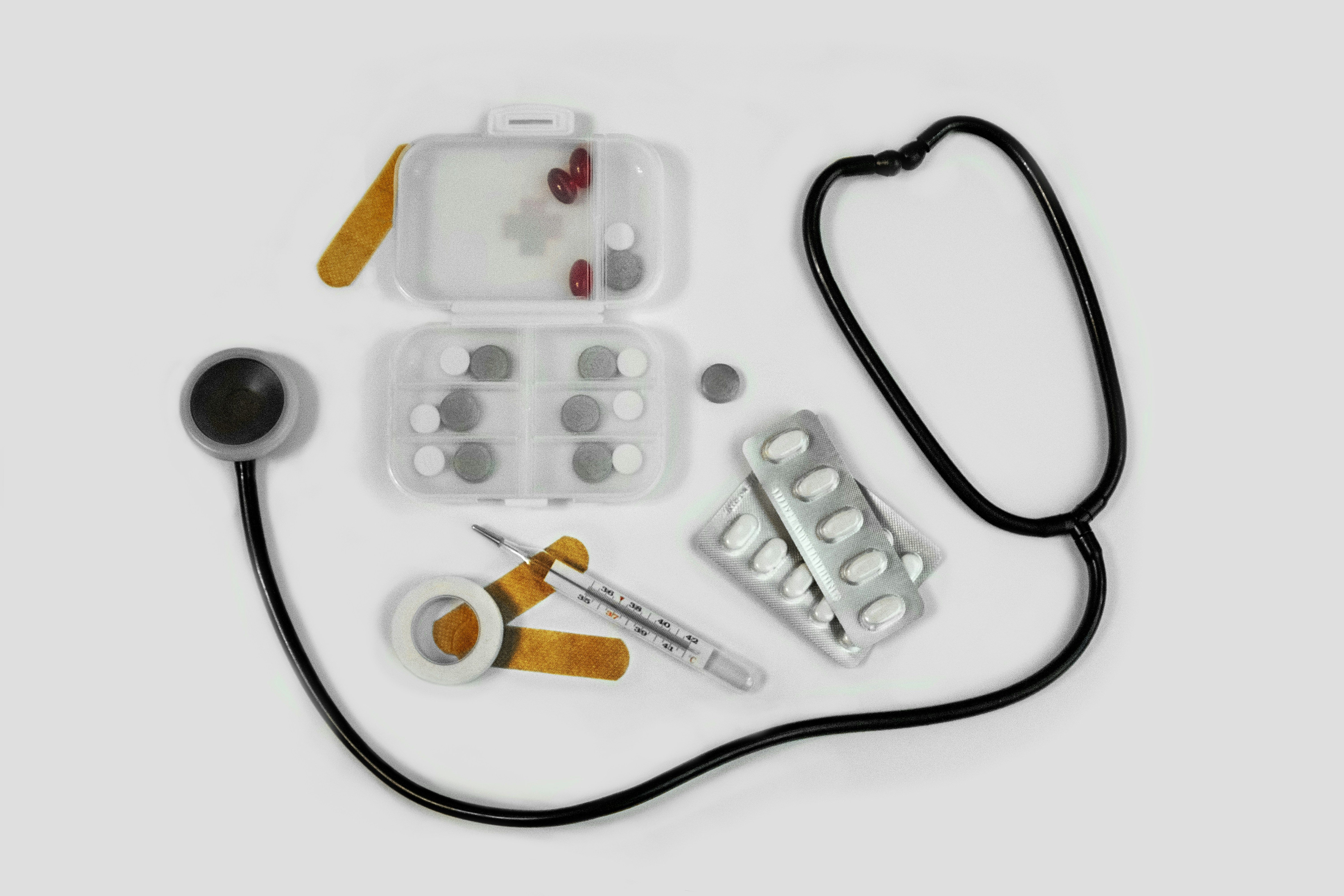Stomach illness can come on fast, leaving you uncertain if it started with something you ate or something contagious you picked up. Food poisoning and norovirus are two of the most common culprits behind sudden nausea, vomiting, and diarrhea, and it’s easy to confuse one for the other.
While norovirus is one of the leading viral causes of food poisoning, the two conditions differ in how they spread, how long they last, and how they’re treated. Knowing the difference between norovirus and food poisoning can help you manage symptoms effectively, recover more quickly, and prevent spreading illness to others.
What Is Food Poisoning?
Food poisoning occurs when food or beverages become contaminated with harmful bacteria, viruses, parasites, or toxins. Common pathogens include norovirus, Salmonella, E. coli, Listeria, and Clostridium perfringens. Contamination can happen through undercooked meat, unwashed produce, or food left at unsafe temperatures.¹
According to the CDC, in 2019 alone, more than 53,000 hospitalizations in the U.S. were linked to foodborne illnesses caused by seven major pathogens—and norovirus was the leading cause of both these infections and the resulting hospitalizations.² That means even though norovirus is viral, it can technically be a type of food poisoning when transmitted through contaminated food.
What Is Norovirus?
Norovirus is a highly contagious virus that causes viral gastroenteritis, sometimes referred to as the “stomach flu.” It spreads easily through contaminated food or water, infected surfaces, or direct contact with someone who is sick. Because it takes only a few viral particles to cause infection, outbreaks often occur in group settings such as schools, restaurants, nursing homes, and cruise ships.
Each year, the U.S. experiences around 2,500 norovirus outbreaks, accounting for roughly 58% of all foodborne illnesses nationwide.¹³
Norovirus vs Food Poisoning
Food poisoning and norovirus both lead to digestive upset, but their sources, timing, and contagiousness differ. Understanding these differences and similarities can help you recognize what’s happening and choose the right care:¹,⁴
Symptoms
Food poisoning and norovirus share many of the same symptoms, including abdominal cramping, fever, diarrhea, headache, and weakness. Norovirus and food poisoning symptoms both include digestive discomfort, but their main differences lie in how quickly symptoms appear and how long they last.
Causes
Food poisoning occurs when food is contaminated by bacteria, toxins, or parasites, often due to undercooking, improper storage, or poor hygiene during preparation. Norovirus spreads through infected people, contaminated water, or food handled by someone sick.
Onset and Duration
Food poisoning can appear within 2 to 6 hours after eating contaminated food and take a couple of days to resolve. Norovirus symptoms usually appear 12 to 48 hours after exposure and improve within 1 to 3 days.
Contagiousness
Norovirus is extremely contagious—it spreads through contact with infected individuals, contaminated surfaces, or shared food. People can continue shedding the virus even after symptoms stop. Most types of food poisoning are not contagious, but viral forms such as norovirus and hepatitis A can spread from person to person.
Treatment
Both food poisoning and norovirus infections usually require rest and hydration. Rest and replacing lost fluids with electrolyte solutions are essential. Over-the-counter anti-nausea or antidiarrheal medications may help ease symptoms, but bacterial food poisoning may sometimes require antibiotics prescribed by a doctor.
How to Tell If You Have Food Poisoning or Norovirus
The best way to tell the difference between norovirus and food poisoning is to look at timing, exposure, and spread. If symptoms appear just a few hours after eating, food poisoning is more likely. When several people around you are sick at once, it’s probably norovirus, which spreads person to person. Undercooked meat, dairy, and food left out too long point toward food poisoning, while fatigue, low fever, and body aches suggest norovirus.
If you can’t tell which you have, stay hydrated and rest as much as possible. Seek medical care if vomiting or diarrhea lasts longer than a few days, if you notice signs of dehydration, or if your fever rises above 102°F.¹,⁴
Dehydration During Norovirus or Food Poisoning
Dehydration is one of the most serious complications of both food poisoning and norovirus. Vomiting and diarrhea rapidly deplete fluids and electrolytes, which are vital for heart, muscle, and nerve function. Mild dehydration can cause dizziness, dry mouth, and weakness, while severe cases may lead to confusion, rapid heartbeat, or minimal urine output.
To stay hydrated, sip small amounts of water or electrolyte drinks frequently, especially if you can’t tolerate large volumes at once. Avoid alcohol, caffeine, and sugary beverages, which worsen dehydration. If symptoms persist or worsen, medical treatment such as IV fluids may be necessary to restore balance.

How to Prevent Food Poisoning and Norovirus
Good hygiene and safe food handling are the best defenses against food poisoning or norovirus. Here are a few tips to prevent both:⁴,⁵
- Wash hands frequently, especially after using the bathroom or before preparing food.
- Disinfect countertops and cooking tools with bleach-based cleaners.
- Cook meat, seafood, and eggs to safe internal temperatures.
- Avoid cross-contamination by using separate cutting boards for raw meat and produce.
- Refrigerate leftovers promptly and never eat food that has been sitting out for more than two hours.
- Stay home and avoid preparing food for others while you’re sick or for at least two days after symptoms stop.
When to See a Doctor for Food Poisoning Norovirus
Most mild cases of food poisoning or norovirus resolve on their own, but you should seek medical care if you experience:¹,⁴
- Severe dehydration (dry mouth, dizziness, infrequent urination)
- High fever (over 102°F or 39°C)
- Blood in stool or vomit
- Symptoms lasting more than three days
- Severe abdominal pain or confusion
People with weakened immune systems, pregnant women, infants, and older adults are more likely to experience complications and should contact a healthcare provider promptly.
Frequently Asked Questions
Is food poisoning contagious?
Most forms of food poisoning aren’t contagious, but a few—like those caused by norovirus or hepatitis A—can spread from person to person.
Can norovirus come from food?
Yes. Norovirus can contaminate food through infected handlers or unsafe water sources, and eating even a small amount of contaminated food can cause illness.
What’s the fastest way to recover from food poisoning?
Drink plenty of fluids, eat bland foods once you can tolerate them, and get rest. Avoid caffeine, alcohol, and dairy until your stomach feels fully settled.
Get Fast Relief With 24hrdoc
24hrdoc makes it simple to get care from home with norovirus or food poisoning treatment available 24/7. Through our secure telehealth platform, you can connect with a licensed provider anytime for fast evaluation and personalized care.
Our clinicians can prescribe medications for nausea, vomiting, diarrhea, or dehydration, and provide online urgent care treatment for related symptoms such as fever, stomach cramps, and weakness. With quick prescriptions, discreet service, and round-the-clock access, 24hrdoc helps you recover safely and comfortably—without the wait or hassle of an in-person visit.
Sources:
- MedlinePlus. Food poisoning.
- CDC. Estimates: Burden of Foodborne Illness in the United States.
- CDC. Norovirus Facts and Stats.
- Healthline. Everything You Need to Know About Norovirus.
- MedlinePlus. Preventing food poisoning.





